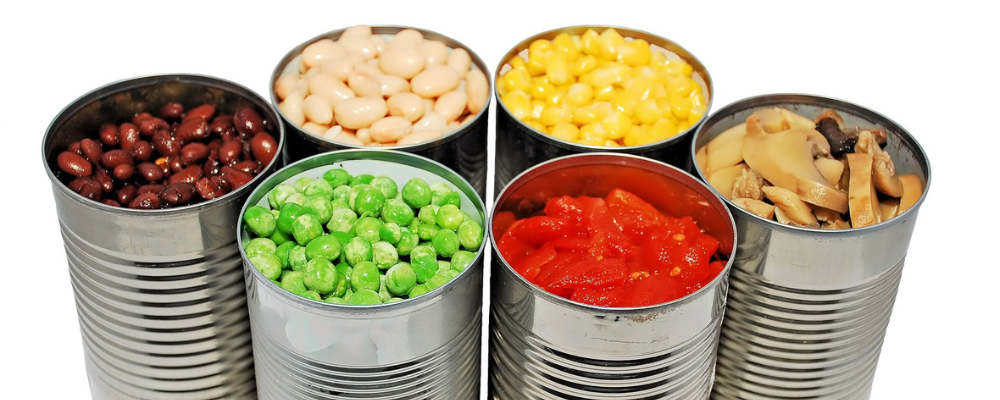
Canned Foods CAN Be Healthy
— By Patty Neal, UMaine Dietetic Intern and Kate Yerxa, Extension Educator
I am sure you are thinking, “Wait, I thought canned food wasn’t healthy.” Canned foods are in fact healthy. Canned fruits, vegetables, beans, poultry, and fish are low-calorie foods that are rich in nutrients.
What do the experts say?
- Canned foods keep their nutrient content. Studies conducted show that canned fruits and vegetables keep certain nutrients, while other nutrients are increased.
- A study found that frequent canned food users consumed more nutrient-dense foods and had an increased intake of seventeen essential nutrients compared to infrequent canned food users.
- Canned foods supply a variety of options, such as fruits, vegetables, beans, meats, and fish that can be served individually or combined into dishes like soups, stews, casseroles, meat dishes, and baked desserts. This increases your opportunities to eat a variety of healthful foods without spending a lot of your food budget.
It is not just the nutritional benefits that make canned foods worth buying. With canned foods, you do not need to worry if you have enough room in your freezer. Or if the power goes out, you do not have to worry about your food thawing and going bad. Instead, you only need to decide which shelf in your cabinet or pantry to store it on. Canned foods are also convenient to use in recipes and are typically lower in price compared to fresh versions of the food.
What about sodium?
Did you know that 40% of the sodium we consume daily comes from ten types of food, and canned fruits and vegetables are not one of them? The top ten food sources of sodium eaten by most people are bread and rolls, pizza, sandwiches, cold cuts and cured meats, tacos and burritos, soup, chicken, cheese, eggs and omelets, and savory snacks such as chips, crackers, snack mixes, and popcorn.
If you are worried about the sodium level in your canned foods, you can drain and rinse the food before using. Canned products such as beans, vegetables, and meats, like chicken or tuna, can be drained and rinsed in a colander and can reduce sodium by 36 – 41%.
There are multiple varieties when choosing canned foods, including low-sodium, reduced-sodium, or no-added-salt. Make sure to read the label when deciding on what is a suitable level of sodium for you. The nutrition facts label helps you make healthier choices about choosing lower sodium foods – a tip to remember when reading the label is that 5% or less of the Daily Value (DV) is viewed as low in a nutrient, and 20% or more of the DV is considered high.
Canned foods have gotten a bad rap. For more information about the health benefits of canned foods, check out the article Canned Food Myths – Busted! or visit the Academy of Nutrition and Dietetics article Are Canned Foods Nutritious for My Family?
Resources
- Are Canned Foods Nutritious for My Family? (eatright; Academy of Nutrition and Dietetics)
- About the buzz: Eating canned vegetables boosts nutrients, not sodium? (Have a Plant)
- Sodium in your diet. (FDA)
